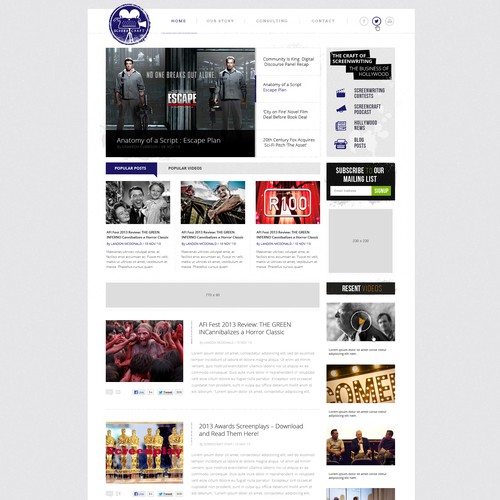8 Simple Techniques For News Websites
8 Simple Techniques For News Websites
Blog Article
6 Easy Facts About News Websites Explained
Table of ContentsThe 2-Minute Rule for News WebsitesGetting My News Websites To WorkNews Websites - An OverviewA Biased View of News WebsitesThe Main Principles Of News Websites
It was down in the UK and Brazil yet up some other countries, such as Greece, Bulgaria, and Poland (News Websites). This year, for the first time, we inquired about the different manner ins which people prevent the news and discovered that around half of avoiders (53%) were trying to do so in a broad-brush or regular method as an example, by switching off the radio when the news came on, or by scrolling past the news in social media sitesYou claimed that you attempt to actively avoid information.

I'm possibly selecting to find out more light-hearted stories than I used to presently. M, 51, UK Turning my back on information is the only method I feel I can cope occasionally. I have to consciously make the initiative to turn away for the purpose of my very own mental wellness.
The Only Guide to News Websites
Careful avoidance of Ukraine information was greatest in a lot of the countries closest to the problem, strengthening findings from our added survey last year, right after the battle had actually begun. Our information may not suggest a lack of rate of interest in Ukraine from neighboring nations however instead a need to take care of time or secure mental health and wellness from the extremely actual scaries of war.
Comparing Finland with a politically polarised country such as the USA (see following graph) that is less affected by the war, we find a really different pattern of topic evasion. In the United States, we find that consumers are more most likely to prevent subjects such as nationwide politics and social justice, where arguments over concerns such as gender, sexuality, and race have actually ended up being very politicised.
American politics are rather toxic these days. I find in some cases that I have to detach from tales that simply make me upset. F, 61, USA For some people, bitter and dissentious political discussions are a factor to switch off information altogether, but for some political partisans, avoidance is usually about obstructing out viewpoints you don't intend to hear.

All about News Websites
Some are aiming to make news a lot more available for hard-to-reach teams, broadening the information program, appointing even more motivating or positive news, or embracing constructive or options journalism that offer individuals a feeling of hope or individual agency. In our survey this year, we asked respondents about their passion in these various methods.
This describes why tales like Ukraine or national politics execute well with news regulars yet can at the exact same time turn less interested users away (News Websites). Selective avoiders are much less interested in all kinds of information than non-avoiders however in loved one terms they do appear to be extra interested in positive or solutions-based information

Things about News Websites
2023). This might hold true in the moment, but over time it appears to be leaving lots of people empty and less completely satisfied, which might be weakening our connection with and count on the news. Throughout markets, total depend on in information (40%) and count on the sources read this article individuals use themselves (46%) are down by an additionally 2 portion points this year.
With the rear-view mirror, the COVID-19 depend on bump is clearly noticeable in the complying with chart, though the instructions of travel after that has been mixed. In some instances (e.g. Finland), the depend on increase has actually been preserved, while in others the upturn looks more like a blip in a tale of continued lasting decline.
Some of the highest possible reported degrees of media criticism are found in nations with highest degree of question, such as Greece, the Philippines, the United States, France, and the United Kingdom. The most affordable levels of media objection are frequently in those with greater levels of trust fund, such as Finland, Norway, Denmark, and Japan.
Unknown Facts About News Websites
This year we asked respondents about their choices for message, audio and video clip when taking in information online. Generally, we discover that the bulk still like to review the information (57%), as opposed to watch (30%) or listen to it (13%), yet younger individuals (under-35s) are more probable to listen (17%) than older teams.
Behind the standards we locate substantial and surprising country distinctions. In markets with a strong analysis practice, such as Finland and the UK, around 8 in 10 still favor to review on-line information, yet in India and Thailand, around 4 in 10 (40%) state they like to enjoy news online, and in the Philippines that proportion is over half (52%).
Report this page